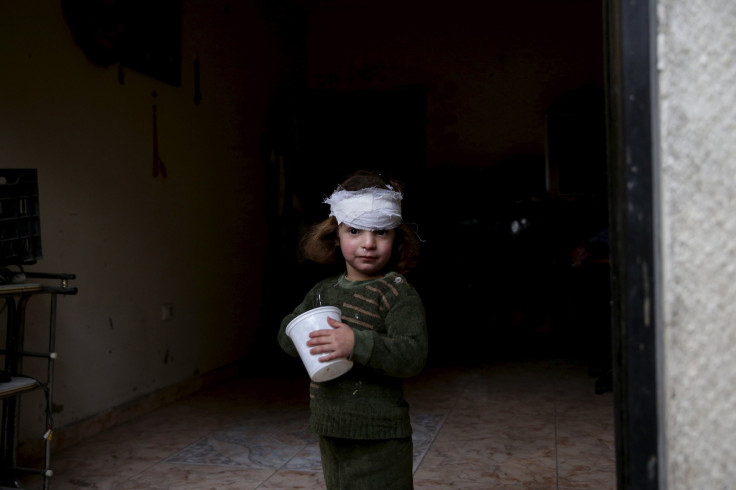Polio Spreads In Syria, But Political Turmoil Prevents Vaccination Efforts From Moving Forward

The polio outbreak in Syria continues to spread, and though the government promised to immunize all Syrian children under the age of 5, political turmoil is preventing vaccination efforts from moving forward.
Dr. Mohammed Al Saad of Gaziantep, Turkey, told NPR that the polio outbreak is actually “spreading quickly.” In October, there were 10 polio cases confirmed in Syria, and that number has now reached 17, according to the WHO — polio has reached four cities, including an area near Damascus, the Syrian capital. Al Saad noted that there are also more than 60 suspected cases.
On Monday, the United Nations airlifted supplies and vaccines for more than 538,000 children in northeastern Syria. “The medicines delivered to Al Hassakeh are intended to cover the gaps in Syria’s northeast including in hard-to-reach areas of Raqqa, Deir Ezzor and Al Hassakeh governorates,” UNHCR representative Tarik Kurdi said in a U.N. release. “These vaccines against polio will be used in the second round of vaccinations, which will start on December 8th.”
Polio is an infectious disease that can cause paralysis, and if not treated, death. It has been eradicated in most of the world except for a handful of countries, and has reappeared in Syria since its civil war. Polio remains endemic in Nigeria, Pakistan, and Afghanistan. It mainly affects children under the age of 5.
The children who are particularly at risk are those under the age of 2, who were born in Syria after the war had already begun and did not have access to proper immunization. Furthermore, the war continues to stall these vaccination attempts, as the U.N. is having trouble handing out vaccines. The U.N. can only operate in sovereign states, meaning it must work through the central government in Damascus; NPR reports that just last month, the Syrian government blocked a U.N. Security Council statement that urged cross-border aid.
“In the past couple of years, we were not able to reach more than half a million children because of access restrictions,” UNICEF spokeswoman Juliette Touma told NPR. “And this could explain why we have polio inside Syria.” Doctors who are with the Polio Task Force on the side of the opposition, argue that the vaccination program being pushed through Damascus is not reaching children in rebel areas, where conditions are most dire and unsanitary.
“We are sure that the people in Dier ez-Sor [and] some villages don’t know about the polio, actually,” Dr. Khaled Almilaji told NPR. “Do they know they have to take the vaccines?” He continued, “This is a disease. This is not politics.”



























